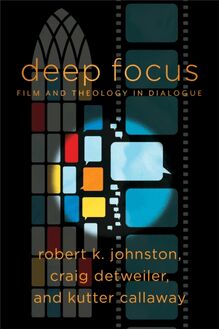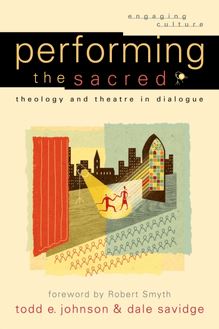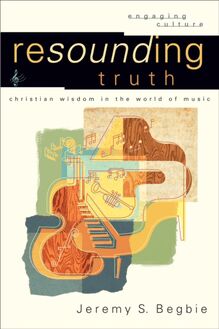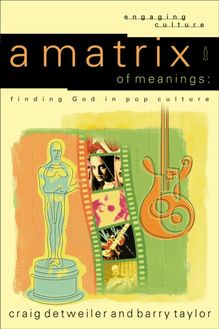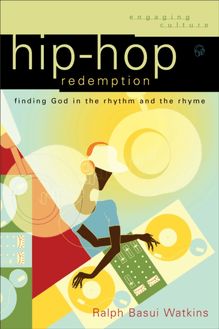-
 Univers
Univers
-
 Ebooks
Ebooks
-
 Livres audio
Livres audio
-
 Presse
Presse
-
 Podcasts
Podcasts
-
 BD
BD
-
 Documents
Documents
-
- Cours
- Révisions
- Ressources pédagogiques
- Sciences de l’éducation
- Manuels scolaires
- Langues
- Travaux de classe
- Annales de BEP
- Etudes supérieures
- Maternelle et primaire
- Fiches de lecture
- Orientation scolaire
- Méthodologie
- Corrigés de devoir
- Annales d’examens et concours
- Annales du bac
- Annales du brevet
- Rapports de stage
La lecture à portée de main
Vous pourrez modifier la taille du texte de cet ouvrage
Découvre YouScribe en t'inscrivant gratuitement
Je m'inscrisDécouvre YouScribe en t'inscrivant gratuitement
Je m'inscrisEn savoir plus
Vous pourrez modifier la taille du texte de cet ouvrage
En savoir plus

Description
Sujets
Informations
| Publié par | Baker Publishing Group |
| Date de parution | 15 janvier 2013 |
| Nombre de lectures | 0 |
| EAN13 | 9781441240507 |
| Langue | English |
Informations légales : prix de location à la page 0,0749€. Cette information est donnée uniquement à titre indicatif conformément à la législation en vigueur.
Extrait
Engaging Culture
W ILLIAM A. D YRNESS AND R OBERT K. J OHNSTON, SERIES EDITORS
The Engaging Culture series is designed to help Christians respond with theological discernment to our contemporary culture. Each volume explores particular cultural expressions, seeking to discover God’s presence in the world and to involve readers in sympathetic dialogue and active discipleship. These books encourage neither an uninformed rejection nor an uncritical embrace of culture, but active engagement informed by theological reflection.
© 2012 by Clive Marsh & Vaughan S. Roberts
Published by Baker Academic a division of Baker Publishing Group P.O. Box 6287, Grand Rapids, MI 49516-6287 www.bakeracademic.com
Ebook edition created 2012
All rights reserved. No part of this publication may be reproduced, stored in a retrieval system, or transmitted in any form or by any means for example, electronic, photocopy, recording without the prior written permission of the publisher. The only exception is brief quotations in printed reviews.
ISBN 978-1-4412-4050-7
Library of Congress Cataloging-in-Publication Data is on file at the Library of Congress, Washington, DC.
Scripture quotations are from the Holy Bible, New International Version®. NIV®. Copyright © 1973, 1978, 1984, 2011 by Biblica, Inc.™ Used by permission of Zondervan. All rights reserved worldwide. www.zondervan.com
The internet addresses, email addresses, and phone numbers in this book are accurate at the time of publication. They are provided as a resource. Baker Publishing Group does not endorse them or vouch for their content or permanence.
For Philip and Hannah, who keep Clive in touch and don’t hold back with their opinions; and for Paul, who didn’t need to share his extensive record collection and sound system with his younger brother, but did generously.
For Mandy, Becky, and Jon and our shared love of music of all kinds.
Cover
Series Page
Title Page
Copyright Page
Dedication
Foreword by Tom Beaudoin
Acknowledgments
Introduction
Part 1 Music and Religion
1. Music in Context: Contemporary Discussion about Religion and Popular Culture
2. Explorations in Affective Space: The Magisteria-Ibiza Spectrum
3. Acknowledging a Theological Interest: Popular Music from Sin to Sacramentality
Part 2 Living by Pop Music
4. Pop Music in the Marketplace
5. Pop Music and the Body
6. The Tingle Factor: Popular Music and Transcendence Today
7. Pop Music, Ritual, and Worship
8. What’s on Your iPod? Classics, Canons, and the Question of What Matters
Part 3 Pop Music and Theology
9. The Discipline of Listening: How (and Why) What We’re Doing with Music Matters Ultimately
10. Three Steps to Heaven? On Negotiating Meaning between Popular Music and Christian Theology
11. Embodied Social Rituals: Revisiting Theology through Popular Music
A Programmatic Postscript: Practical Consequences for Church, Academy, and Daily Living
Notes
Bibliography
Subject Index
Music Index
Back Cover
One of the most fundamental experiences of human life in almost any culture is music’s power to structure personal and social identity and relationships. There are special reasons for this to be true in contemporary technological societies, where musical invention and enjoyment is notably diffuse and influential in everyday life. This is so on a micro level, when people can personalize their favorite music electronically, listening in privacy throughout their day. It is also true on a macro level, with the profusion of concert and festival culture, from public minstrels on street corners and in subway stations, to larger concerts and multiday festivals, all of which show every sign of increasing their place in the soundscape that arranges everyday life for a majority of the world’s privileged people.
Music, especially that music disseminated “popularly” through electronic media platforms of internet, film, and television, is a fundamental palette for contemporary sensing, for negotiating what is real. Popular music is that color wheel in relation to which people identify those claiming powers around which they orient their lives. The experience of those who enjoy music, inadequately called (and sometimes dismissed as) “fans,” is a significant frame for holding whatever people come to call religious or spiritual.
Clive Marsh and Vaughan Roberts are on the leading edge of research that makes theological sense of popular music. With Personal Jesus , they show how important it is for theologically minded people to take seriously the concerns of fans, as those active listeners experience the music that they love, that they incorporate into their bodily dispositions and their thinking, and that they ritualize. They show how religious studies is not an optional discourse for comprehending popular music’s function in everyday life, but an important partner in an interdisciplinary exploration. They do all this while balancing respect for the impact of music on listeners and the active meanings that fans make of it, on the one hand, and the theological tradition that provides basic concepts for organizing experience, for those related to but not stuck within religious communities, on the other.
Much theological research to date in popular culture studies has treated pop culture as a set of “texts” waiting to be read, like minor bibles awaiting postmodern interpreters. I am not the only theologian who has resisted working from the experience and practice of others, having often preferred my own practice instead, but cloaked in and defended by normative-sounding, systematic-theological-aspiring, concepts. Marsh and Roberts rightly criticize my and others’ work, or rather resituate it in its promise and limits, and help change the conversation. If popular music matters, they argue, that mattering has to do with its uses. Even more so, if it matters theologically, that mattering has to do with music’s effect on human beings. In so proceeding, Marsh and Roberts prepare the way for a new style of making theological sense of popular culture. The continued decline of the influence of religious traditions makes this kind of theological study even more imperative. In this situation, Marsh and Roberts show us why studying the lived experience of popular music is an imperative if we want to find out where religion cohabitates with ordinary stuff, more or less openly, today: in the spaces of meaning communicated by music in everyday life.
Tom Beaudoin Fordham University, New York City
A book like this takes a long time to put together. Cowritten, long in gestation, a labor of love as well as both an academic project and a contribution to a faith tradition, a project borne of passion to which many other fans of popular music have contributed; it is the result of countless conversations and debates in addition to the hours spent before a screen, poring over books or, yes, just listening. Trying to list all those who should be thanked will prove impossible. But try we must because the material here has been thrashed out formally and informally in many places and contexts.
Chapter 2 began life as the Fernley-Hartley Lecture for 2010. Clive is very grateful for the invitation to deliver that lecture and for the continued support from the Fernley-Hartley Trust as the lecture (first published in Epworth Review 37/3, 2010) now finds its way into book form. He has delivered other sections, early drafts of the material presented here, or studies related to it, in many places, including the Theologische Hochschule , Reutlingen (Germany); the Conference of the Austrian Methodist Church (Vienna, June 2010); the Institute for Theology, Imagination and the Arts at the University of St. Andrew’s, Scotland; the Leicester Cathedral theological discussion group; the 2011 Christian Congregational Music conference at Ripon College, Cuddesdon, Oxford; the Society for the Study of Theology (SST) Theology and Arts Seminar (York 2012); and Hinde Street Methodist Church (one of the Hugh Price Hughes Lectures for 2012). He is grateful to Michael Nausner, Gavin Hopps, David Monteith, Monique Ingalls, Ben Quash, and Sue Keegan Von Allmen for their initiative and support in making such opportunities possible.
Vaughan has delivered early drafts of ideas and material presented here at the British Sociological Association Sociology of Religion Study Group; the Institute for Theology, Imagination and the Arts at the University of St. Andrew’s, Scotland; and with churches in the Warwick Team Ministry. He is grateful to Timothy, Beth, and Isabel Hart-Andersen for sharing their road trip across twelve states (and five national parks) of the USA in 2009 when we first tried out our music survey.
We have both presented at the Music and Religion consultation of the American Academy of Religion and at the UK-based international Religion and Popular Culture Network, both groups being important channels of support for our work and reflection.
No less significant are long-suffering local groups and congregations who have been willing to endure musical experimentation at various times. Clive wishes to thank churches in the Rotherham and Leicester Trinity Circuits of the Methodist Church, and the community at the Queen’s Foundation Birmingham for their forbearance and participation. Vaughan wishes to thank the Parish of St. Thomas on the Bourne, Farnham; the University of Bath and Christ Church, Bath; the Benefice of Chewton Mendip, Litton and Ston Easton; the Collegiate Church of St. Mary and the Warwick Team Ministry; the Dioceses of Guildford, Bath and Wells, and Coventry.
More informally, though just as vitally, we have each enjoyed sometimes long-standing, often intense, discussions with friends and relatives far and near about music, religion, meaning, theology, and daily life all of which have fed into the pages that follow. In no other order than alphabetical, we thank: John and Mary Adams
-
 Univers
Univers
-
 Ebooks
Ebooks
-
 Livres audio
Livres audio
-
 Presse
Presse
-
 Podcasts
Podcasts
-
 BD
BD
-
 Documents
Documents
-
Jeunesse
-
Littérature
-
Ressources professionnelles
-
Santé et bien-être
-
Savoirs
-
Education
-
Loisirs et hobbies
-
Art, musique et cinéma
-
Actualité et débat de société
-
Jeunesse
-
Littérature
-
Ressources professionnelles
-
Santé et bien-être
-
Savoirs
-
Education
-
Loisirs et hobbies
-
Art, musique et cinéma
-
Actualité et débat de société
-
Actualités
-
Lifestyle
-
Presse jeunesse
-
Presse professionnelle
-
Pratique
-
Presse sportive
-
Presse internationale
-
Culture & Médias
-
Action et Aventures
-
Science-fiction et Fantasy
-
Société
-
Jeunesse
-
Littérature
-
Ressources professionnelles
-
Santé et bien-être
-
Savoirs
-
Education
-
Loisirs et hobbies
-
Art, musique et cinéma
-
Actualité et débat de société
- Cours
- Révisions
- Ressources pédagogiques
- Sciences de l’éducation
- Manuels scolaires
- Langues
- Travaux de classe
- Annales de BEP
- Etudes supérieures
- Maternelle et primaire
- Fiches de lecture
- Orientation scolaire
- Méthodologie
- Corrigés de devoir
- Annales d’examens et concours
- Annales du bac
- Annales du brevet
- Rapports de stage


